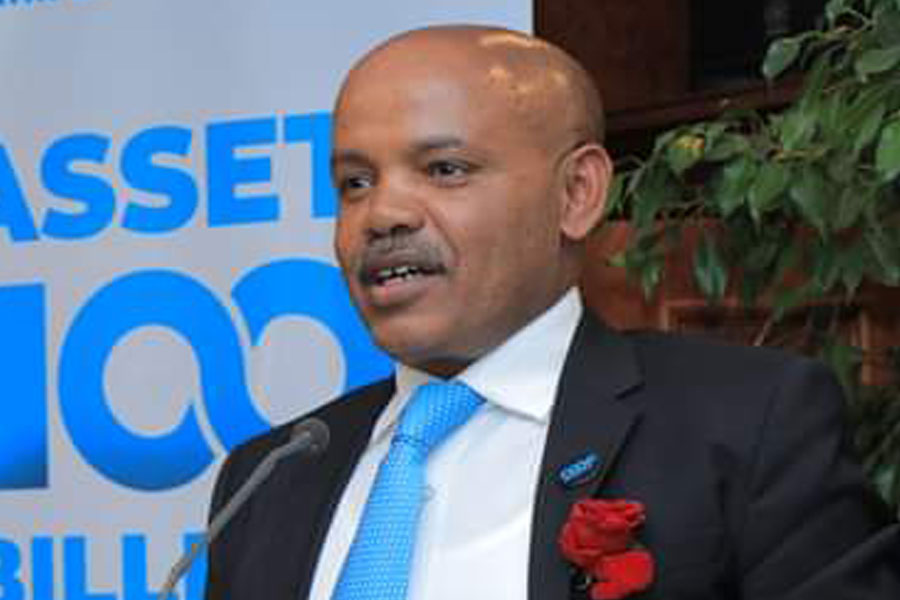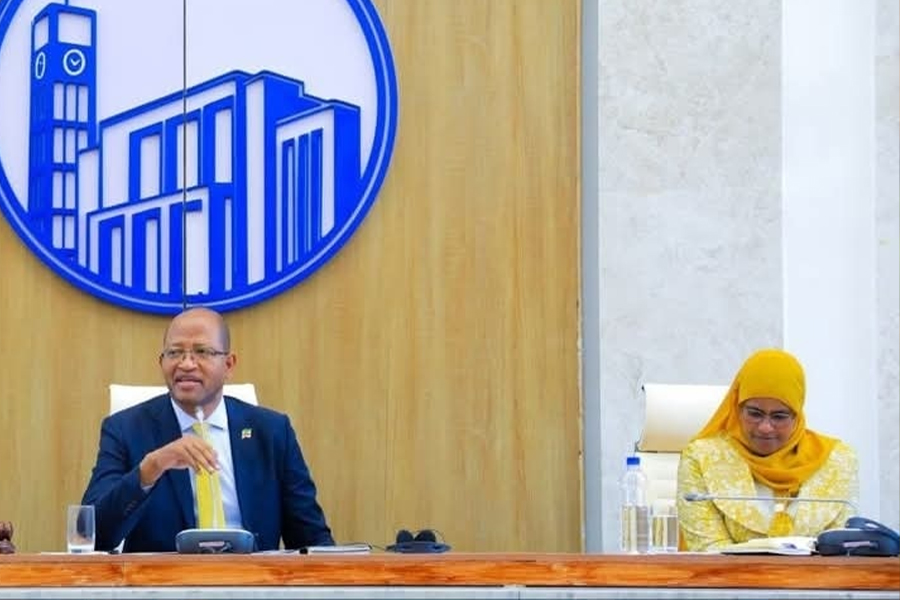
Fortune News | Apr 03,2023
Jan 1 , 2022
By Ngaire Woods
After a year in which people longed to get back to “normal,” it is now clear that COVID-19 will not make this possible. The pandemic, now heading into its third year, has profoundly affected individuals, communities, countries, and international cooperation, creating four tough challenges for 2022. Rebuilding trust will be critical to confronting all of them.
The first challenge is that people’s relationship to work has changed. In some countries, lockdowns, the death of loved ones, and the general uncertainty of the pandemic have prompted or accelerated a rethink. In the United States, the number of workers quitting their jobs exceeded four million in each month from July to October 2021. Many young Chinese are joining the “lie flat” movement by opting out of long working hours, doing the bare minimum to get by, and striving for only what is absolutely essential for survival. The pandemic has deepened the divide between those who can work from home and the many who cannot.
In 2022, people need to trust that going back to work will genuinely improve their lives. Getting to that point will require action by both governments and companies. Investment to help remedy the disruption in education caused by COVID-19 is crucial. Some 1.6 billion students in 180 countries were kept out of school as a result of the pandemic. Establishing programmes to help students catch up – and gain the skills and training needed for the twenty-first-century economy – will help them get better jobs.
Governments cannot do this alone, but they can at least set standards for education and training. They also can create or strengthen firms’ incentives to invest in their workforce by requiring decent pay and working conditions. For their part, employers will need to reevaluate the workplace, demonstrate trust in their employees, invest in professional development, and accommodate new work patterns.
The second challenge in 2022 is to stem the global trend toward authoritarianism. According to Freedom House, the pandemic has weakened checks and balances on government power in at least 80 countries, both rich and poor. Government surveillance, police brutality, and detention have increased, and in many countries, free media and expression have been threatened or curtailed. Vulnerable groups such as ethnic and religious minorities and migrants have suffered disproportionately.
Political corruption is flourishing, too. In Mauritania, according to the Freedom House report, ministers of the ruling party misused COVID-19 funds. In 2020, the prime minister and entire cabinet resigned. In the United Kingdom, Conservative Party members and supporters were given special “fast-track” access to bid for contracts to supply personal protective equipment.
In dozens of countries worldwide, elections have been postponed or cancelled, or certified results have been questioned. In 2022, citizens will need to find ways to hold their leaders accountable and rebuild institutions and public trust. In some countries, this is already happening, reflecting how well governments do five things: provide or regulate public services; anticipate change and protect citizens; use power and public resources ethically; consult their citizens and explain their decisions to them, and improve living conditions for all.
The third challenge the world faces in 2022 is another pandemic. Although it is easy to think that COVID-19 eclipses all other public-health emergencies in our lifetime, our current focus must not blind us to other threats from infectious diseases. Earlier this month, for example, the UK’s chief veterinary officer warned of a “phenomenal level” of avian flu, with “huge human, animal, and trade implications.”
In 2021, the world failed to distribute vaccines, treatments, and therapies for COVID-19 equitably or efficiently. The COVID-19 Vaccine Global Access (COVAX) facility was created to ensure immunization for all, thereby containing mutations of the virus and its spread. But wealthy governments instead competed to secure access to the vaccines for their citizens first.
Trust and cooperation among governments is not an impossible ideal. The key is to design rules, institutions, and policy implementation in a way that assures countries that everyone is (mostly) complying. A deep flaw at the heart of the COVID-19 response has been a lack of transparency about how much governments are paying for vaccine doses – and to whom. In 2022, the world must urgently redesign and improve the global arrangements for vaccine research, distribution, and financing in order to ensure the minimum level of trust needed to make international cooperation possible.
Finally, COVID-19 is transforming the economic rulebook for 2022. Economic nationalism is rising, accelerated by countries’ experiences trying to procure equipment, treatments, and vaccines. Add to this the desire to achieve net-zero emissions targets, and the result likely will be a proliferation of industrial policies, more protectionist trade measures, and greater scepticism toward foreign investors – all against a backdrop of tighter monetary policy and rising government debt.
These trends are heightened by geopolitical alliances and rivalries, which are spilling over into economic deal-making. India and Russia recently stepped up their cooperation by signing 28 agreements in areas ranging from military cooperation to trade. And the European Union is now self-consciously adopting a defence and military planning term, “open strategic autonomy,” to frame its new approach to trade. Taiwan is a good example of how security concerns are being blurred with economic objectives. Its sovereignty has become bound up with a competition for control over the much-sought-after high-grade semiconductors it produces.
The global economic challenges for 2022 are sobering. But even at the height of the Cold War, basic international agreements and institutions of mutual restraint were possible thanks to patient negotiation and arrangements that gave assurances to both sides. Trust is not a panacea to rising international tension, but a modicum of it, backed by broadly credible institutions, will be vital to containing that tension.
There will be no return to the status quo ante after COVID-19 because the pandemic has changed too many things. The challenge for the coming year is to move forward by redesigning and reimagining our rules and institutions with an eye toward reestablishing trust in the domains of work, politics, public health, and economic policy.
PUBLISHED ON
Jan 01,2022 [ VOL
22 , NO
1131]


Fortune News | Apr 03,2023

Radar | Apr 27,2025

Commentaries | Oct 16,2021

Agenda | Apr 06,2019

Viewpoints | Jun 01,2019

View From Arada | Oct 11,2025

Radar | Oct 14,2023

Viewpoints | Jan 01,2022

Radar | Aug 03,2025

Commentaries | Dec 23,2023

Photo Gallery | 180022 Views | May 06,2019

Photo Gallery | 170217 Views | Apr 26,2019

Photo Gallery | 161221 Views | Oct 06,2021

My Opinion | 137242 Views | Aug 14,2021

Dec 22 , 2024 . By TIZITA SHEWAFERAW
Charged with transforming colossal state-owned enterprises into modern and competitiv...

Aug 18 , 2024 . By AKSAH ITALO
Although predictable Yonas Zerihun's job in the ride-hailing service is not immune to...

Jul 28 , 2024 . By TIZITA SHEWAFERAW
Unhabitual, perhaps too many, Samuel Gebreyohannes, 38, used to occasionally enjoy a couple of beers at breakfast. However, he recently swit...

Jul 13 , 2024 . By AKSAH ITALO
Investors who rely on tractors, trucks, and field vehicles for commuting, transporting commodities, and f...

Nov 1 , 2025
The National Bank of Ethiopia (NBE) issued a statement two weeks ago that appeared to...

Oct 25 , 2025
The regulatory machinery is on overdrive. In only two years, no fewer than 35 new pro...

Oct 18 , 2025
The political establishment, notably the ruling party and its top brass, has become p...

Oct 11 , 2025
Ladislas Farago, a roving Associated Press (AP) correspondent, arrived in Ethiopia in...

Nov 2 , 2025
The National Bank of Ethiopia (NBE) has scrapped the credit-growth ceiling that had s...

Nov 2 , 2025 . By SURAFEL MULUGETA
The burgeoning data mining industry is struggling with mounting concerns following th...

Nov 2 , 2025 . By YITBAREK GETACHEW
Berhan Bank has chosen a different route in its pursuit of a new headquarters, opting for a transitional building instea...

Nov 2 , 2025 . By BEZAWIT HULUAGER
Nib International Bank S.C. has found itself at the epicentre of a severe governance...